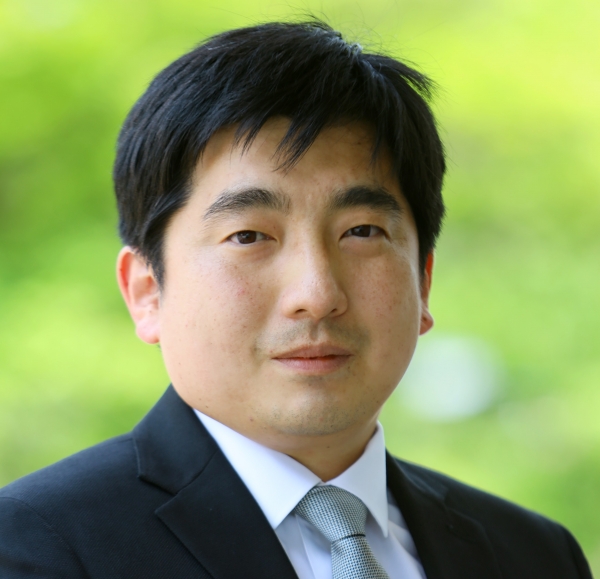I am an assistant professor in the Department of Environmental Science and Engineering (DESE) at POSTECH. I joined the department in January 2020, before the spread of the COVID-19 pandemic. Before I came to POSTECH, I was an assistant professor of the Department of Civil, Construction, and Environmental Engineering at the University of Alabama (2017-2019) and a postdoctoral research associate at Princeton University (2015-2017). I was conferred MA and Ph.D. degrees (2012 and 2015, respectively) from the Department of Civil and Environmental Engineering at Princeton University. The title of my Ph.D. dissertation was “A Multi-Scale Study of U.S. Drought Risk and Predictability”. During my graduate studies, I was co-advised by Drs. Justin Sheffield (University of Southampton, U.K.) and Eric F. Sheffield (Princeton University, U.S.).
Currently, I am the principal investigator of the POSTECH Hydro-Climatology Research (HCR) group. The HCR group currently consists of three postdoctoral research associates, three Ph.D. students, four integrative MSE/Ph.D. students, and three MSE students. The HCR group’s motto is “We are pursuing integrity in our scholarly products, the ownership of our intellectual properties, the citizenship of our group, and the diversity in our community.” The HCR group strives to increase the resilience of our society against natural hazards through convergence knowledge of natural-social systems. The HCR group utilizes big data, process-based climate and hydrological models, and Artificial Intelligence (AI) models to conduct a multi-scale analysis of natural hazards through a transdisciplinary approach.
Reliable seasonal forecasts of droughts and floods provide actionable information to a range of users from local stakeholders to water and climate policy makers in advance of an emergency. Weather prediction is theoretically limited to the following two weeks due to a butterfly effect in which a small difference in initial conditions inside a complex system can make a big difference. Particularly, the prediction skill for the daily weather of the Korean Peninsula is relatively less skillful due to its geographical location. Since the advent of satellites in the 1970s, however, global climate forecast models have been developed and upgraded to overcome the limited prediction skill on the seasonal scale. I am currently collaborating with Dr. Byeong-Hee Kim, a postdoctoral research associate in the HCR group, on assessing the seasonal forecasting skill of the current climate models for springtime droughts and floods over northeastern Asia where the seasonal forecasts have large uncertainties.
Accurate predictability by Earth system models guarantees a transformation towards a more natural hazard-ready society. During the course of an emergency, however, a timely social response is another key to increase community resilience to natural hazards, which requires convergence knowledge across natural and social sciences. However, understanding of social behavior patterns of the current communities during an emergency remain limited because the collection of survey and interview data is time-consuming and costly.
Since the advent of the Internet, Internet Service Providers (ISPs) have monitored and recorded users’ online information search activities through data logging. For example, “Google Trends” is an Internet-based platform that provides and visualizes the user’s online information search activities at the aggregate. It has provided online search activity volume data since 2007. Naver DataLab is another example platform that provides their user’s online search activity volumes. These social Big Data offer a new opportunity to investigate how the public have responded during the course of an emergency.
After becoming aware of the existence of social big monitoring data, I decided to make a pioneering effort with a focus on the linkage between drought risk and drought awareness. I supervised Mr. Sungyoon Kim, a former Ph.D. student at the University of Alabama, to investigate state- and nation-level social behavior patterns of the U.S. communities during the emergency of recent droughts. The findings of their studies include 1) there was a lack of social response during the 2014-17 California drought and 2) increased drought awareness can spread across states through online search activities of relevant information.
Increased greenhouse gas emissions due to human activities is another critical concern of the international community in the context of climate change. Recently, developed nations proposed their net zero emission plans to mitigate the ecological and social impacts of anthropogenic global climate change. However, there is a lack of developing nations’ participation in net zero emission policies. The Earth system might experience anthropogenic global warming until the developed and developing nations work together under a common goal, “climate change mitigation”.
In the context of climate change mitigation, my research group members and I will investigate how anthropogenic global climate change affects the risk of droughts and floods in the disciplines of hydrology and climatology and how social response can be improved during the course of a natural hazard emergency utilizing social Big Data and AI techniques.
I am a founding professor of the AI-Environment program that provides transdisciplinary education opportunities to any POSTECH graduate students who are interested in environmental issues and artificial intelligence. The AI-Environment program welcomes those who pursue taking the lead in preparing for the emerging demands of new value creation and convergence research.
I would like to encourage POSTECH students who are interested in becoming a researcher to keep the following in mind: 1) Do not be afraid of failure, 2) Build your independency/identity in the field, and 3) Establish humanitarian, not monetary, meanings in your work.

Department of Environmental Science and Engineering


